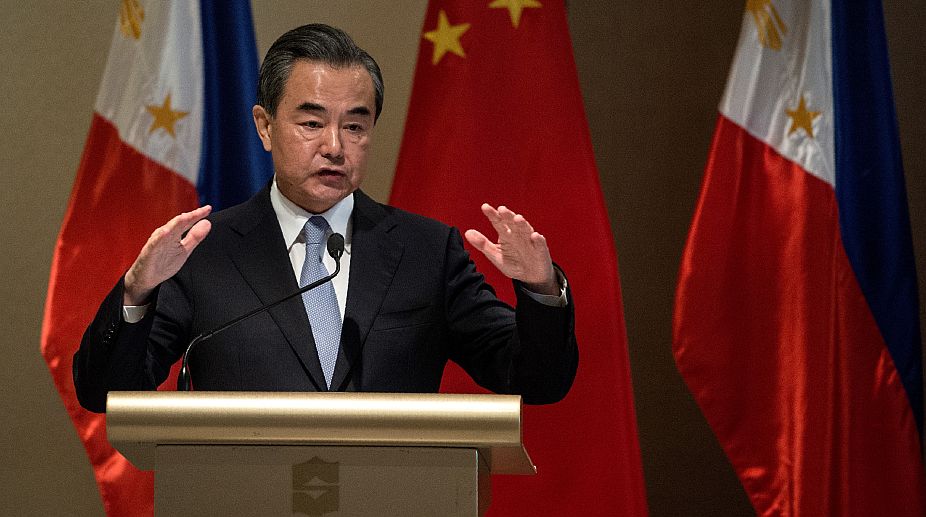Chinese Foreign Minister to discuss Ukraine war with his Russian counterpart today
The meeting follows closely after the summit between Russian President Vladimir Putin and North Korean leader Kim Jong Un

Wang Yi (Photo: AFP)
Beijing is once again expected to ask New Delhi to shed its opposition to the China-Pakistan Economic Corridor (CPEC) when Chinese Foreign Minister Wang Yi visits India for the Russia-India-China (RIC) trilateral meeting on 11 December.
Diplomatic sources here acknowledged that it would be difficult for China to give a concrete shape to the CPEC project without India being on board. The multi-billion dollar CPEC is the flagship project of China’s ambitious Belt, Road Initiative (BRI).
Advertisement
Sources said Beijing’s contention was that the CPEC was aimed at enhancing economic cooperation and not achieving any political ambitions.
India says it would never give up its objection to the ‘so-called’ CPEC since it runs through Indian territory under the illegal occupation of Pakistan in Jammu and Kashmir. There would be no compromise on India’s sovereignty, New Delhi has repeatedly told Beijing. In fact, India refused to participate in China’s BRI Summit in May this year because of its opposition to the CPEC.
The RIC trilateral meeting was earlier slated to be held in April but was postponed at the behest of China, which was apparently upset over Tibetan spiritual leader Dalai Lama’s visit to Arunachal Pradesh. Beijing lays claim over the entire Indian North-eastern state.
This will be the first high-level visit from Beijing following the elevation of Xi Jinping at the 18th Communist Party Congress. Prime Minister Narendra Modi had a brief informal interaction with Chinese Premier Li Keqiang at Manila on the margins of the East Asia Summit earlier this week.
The RIC meeting is to be followed by talks between the Special Representatives (SRs) of India and China over the lingering boundary dispute towards the end of December. The boundary talks are being considered most significant against the backdrop of the more than two months military stand-off between the two countries at Doklam, which ended on 28 August. National Security Advisor (NSA) Ajit Doval is the SR on the Indian side while Chinese State Councillor Yang Jiechi is his country’s SR at the talks.
Observers here say the SRs meet may not produce any major outcome but it would certainly help reduce the current tension on the border between the two countries.
Advertisement